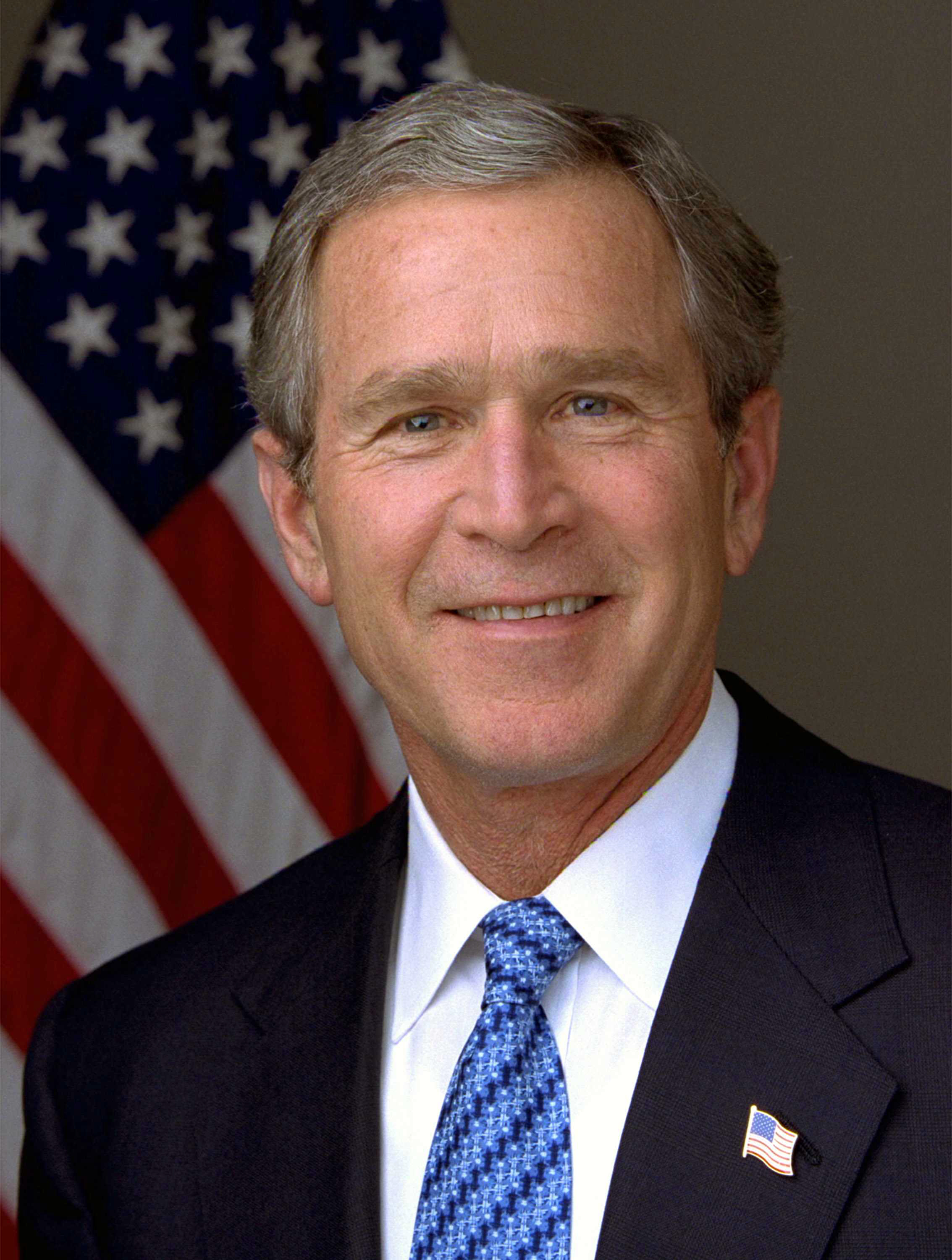George W. Bush
 George Walker Bush (born July 6, 1946) is an American politician and businessman who served as the 43rd president of the United States from 2001 to 2009. A member of the Bush family and the Republican Party, he was the 46th governor of Texas from 1995 to 2000. The eldest son of the 41st president, George H. W. Bush, he flew warplanes in the Texas Air National Guard in his twenties. After graduating from Harvard Business School in 1975, he worked in the oil industry. He later co-owned the Texas Rangers, of Major League Baseball, before being elected governor of Texas in 1994. As governor, Bush successfully sponsored legislation for tort reform, increased education funding, set higher standards for schools, and reformed the criminal justice system. He also helped make Texas the leading producer of wind-generated electricity in the United States. In the 2000 presidential election, he won over Democratic incumbent Vice President Al Gore, while losing the popular vote after a narrow and contested Electoral College win, which involved a Supreme Court decision to stop a recount in Florida.
George Walker Bush (born July 6, 1946) is an American politician and businessman who served as the 43rd president of the United States from 2001 to 2009. A member of the Bush family and the Republican Party, he was the 46th governor of Texas from 1995 to 2000. The eldest son of the 41st president, George H. W. Bush, he flew warplanes in the Texas Air National Guard in his twenties. After graduating from Harvard Business School in 1975, he worked in the oil industry. He later co-owned the Texas Rangers, of Major League Baseball, before being elected governor of Texas in 1994. As governor, Bush successfully sponsored legislation for tort reform, increased education funding, set higher standards for schools, and reformed the criminal justice system. He also helped make Texas the leading producer of wind-generated electricity in the United States. In the 2000 presidential election, he won over Democratic incumbent Vice President Al Gore, while losing the popular vote after a narrow and contested Electoral College win, which involved a Supreme Court decision to stop a recount in Florida.In his first term, Bush signed a major tax-cut program and an education-reform bill, the No Child Left Behind Act. He pushed for socially conservative efforts such as the Partial-Birth Abortion Ban Act and faith-based initiatives. He also initiated the President's Emergency Plan for AIDS Relief, in 2003, to address the AIDS epidemic. The terrorist attacks on September 11, 2001 decisively reshaped his administration, resulting in the start of the war on terror and the creation of the Department of Homeland Security. Bush ordered the invasion of Afghanistan in an effort to overthrow the Taliban, destroy al-Qaeda, and capture Osama bin Laden. He signed the Patriot Act to authorize surveillance of suspected terrorists. He also ordered the 2003 invasion of Iraq to overthrow Saddam Hussein's regime on the false belief that the regime possessed weapons of mass destruction (WMDs) and had ties with al-Qaeda. Bush later signed the Medicare Modernization Act, which created Medicare Part D. In 2004, Bush was re-elected president in a close race, beating Democratic opponent John Kerry and winning the popular vote.
During his second term, Bush made free trade agreements. He appointed John Roberts and Samuel Alito to the Supreme Court. He sought major changes to Social Security and immigration laws, but both efforts failed in Congress. Bush was widely criticized for his administration's handling of Hurricane Katrina and revelations of torture against detainees at Abu Ghraib. Amid his unpopularity, the Democrats regained control of Congress in the 2006 elections. The Afghanistan and Iraq wars continued; in January 2007, Bush launched a surge of troops in Iraq. By December, the U.S. entered the Great Recession, prompting the Bush administration to get congressional approval for economic programs intended to preserve the country's financial system, including the Troubled Asset Relief Program.
After his second term, Bush returned to Texas, where he has maintained a low public profile. At various points in his presidency, he was among both the most popular and the most unpopular presidents in U.S. history. He received the highest recorded approval ratings in the wake of the September 11 attacks, and one of the lowest ratings during the 2007–2008 financial crisis. Bush initially left office as one of the most unpopular U.S. presidents, but public opinion of him has improved since then. Scholars and historians rank Bush in the lower half of presidents. Provided by Wikipedia
